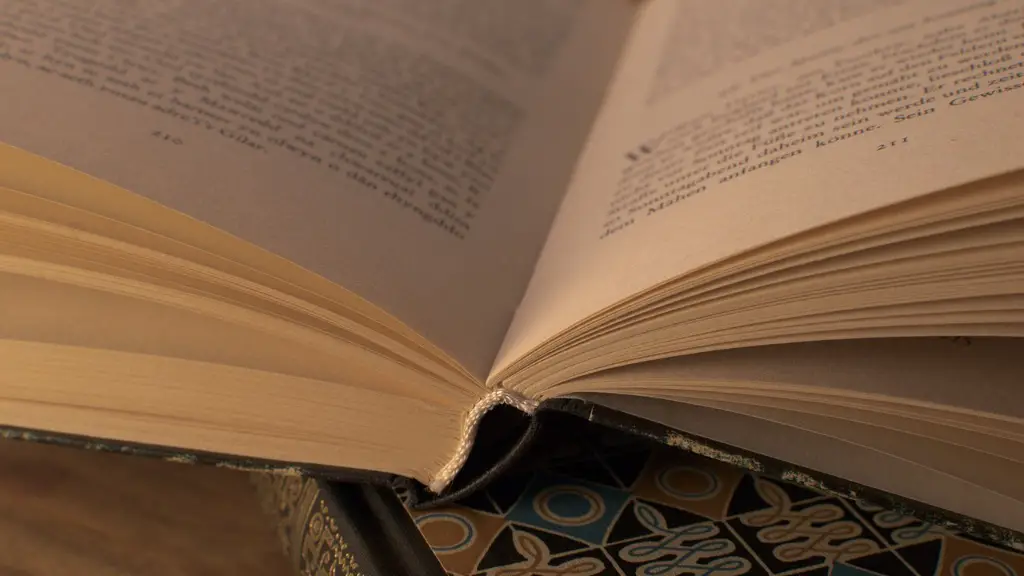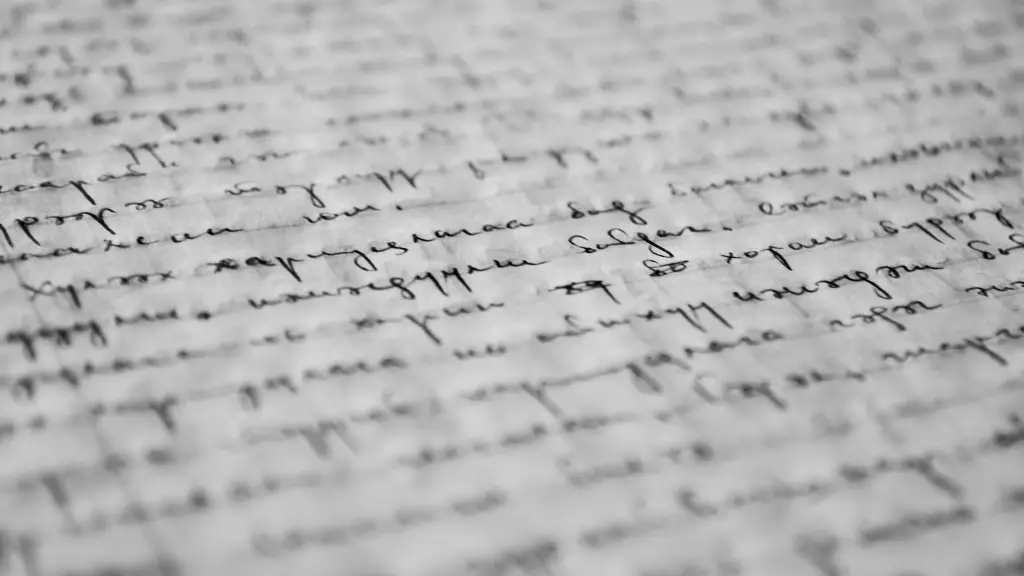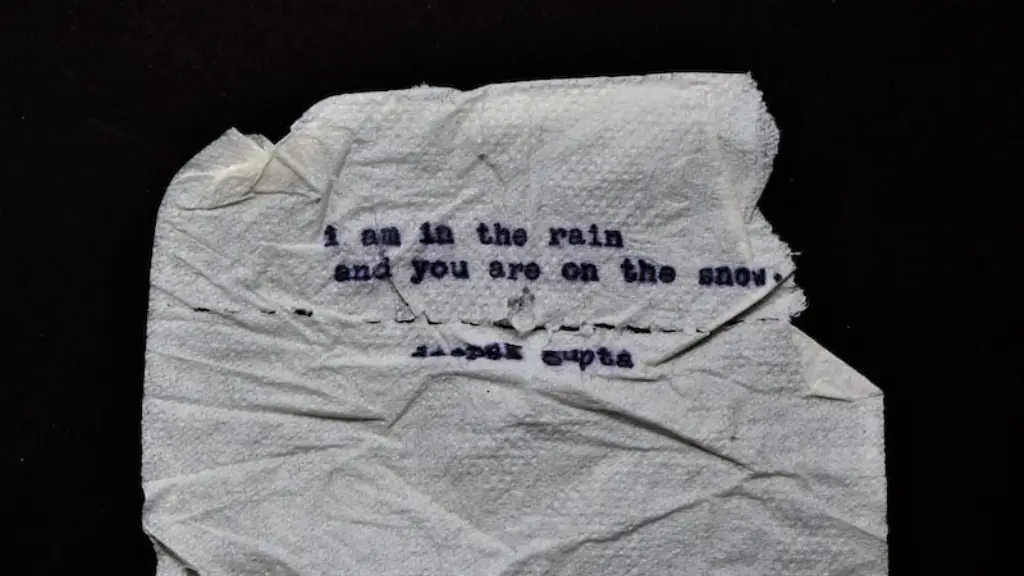How to practice writing poetry
Writing poetry takes talent and dedication, but with the right approach anyone can become a great poet. Poetry encourages its writers to express their innermost thought and feelings and provide a unique outlet for expressing one’s self. But before one can begin to write poetry, they must first learn the basics and build their skillset. This can be done through practice and understanding the art form.
Immersing Yourself In Poetry
Start dive into the art of poetry by reading the works of established poets. Expose yourself to multiple genres and styles of poetry, including classical and modern poetry. Read poems out loud to yourself, and listen to others recite your favorite poems. Visit events or readings of established poets, and immerse yourself in your craft.
Studying the masters of the craft is invaluable, as it helps identify recurring themes, motifs, and poetic devices used by experienced poets. This can provide further education in the art of writing poetry and help one build up a larger context for their own works.
Introducing Structure To Your Writing
The structure and format of a poem is essential to its composition. When writing a poem, it is important to establish structure before moving onto drafting and content. Consider the form of the poem, such as its line lengths, verses and stanzas, as well as its overall meter. Depending on the desired effect, some poems may follow a strict format while others may not.
By experimenting with different structures, a writer becomes more and more familiar with the craft and can better apply their ideas and concepts. Once a structure has been found, later drafts can further explore constituent ideas and the concepts a poem may represent.
Exploring Your Ideas And Developing Themes
Having a general idea and concept of the poem is essential in maintaining focus when writing a poem. Begin by exploring what inspires you and who inspires you. Perhaps it is an abstract concept, or a person from your life you look up to. Consider what driving force will motivate your writing, as well as what themes you wish to pursue within your poem.
Your knowledge of yourself, your ideas, and the concept of the poem, is essential in understanding the deeper meaning behind the words you craft. Once you have identified your influences, explore them and develop themes of the poem. By doing this, you can better explore and navigate between various concepts.
Conducting Research & Brainstorming
The act of brainstorming and researching can be invaluable in structuring and writing a poem. This type of research involves gathering data and information that relates to and guides your writings.
Furthermore, assessing a concept and properly researching it ensures that a poem’s context is accurate and complete. Also, it allows a writer to add new depths to their poem by including behaviors, ideas, and emotions that others can relate to.
Editing And Critiquing Your Work
Finally, when the first draft of a poem is complete, it is important to look at it with a critical eye and reexamine it. Editing one’s work for both grammar and semantics is essential for producing quality content. After this, one is encouraged to get feedback from other writers or even have somebody else read the poem out loud.
This will ensure that you have your original ideas, thoughts and concepts translated properly in the poem. It also gives you a better idea of the poem’s overall form, as well as a deeper understanding of what could be added or removed.
Building A Vault Of Ideas
Having ideas and inspiration is essential to writing poetry. To practice, try to build a vault of ideas or themes. This may involve brainstorming or free writing by way of a notebook or a digital platform. Writing down words or ideas related to the concept of the poem can provide clarity and can easily be turned into subject matter.
A writer may even construct a word bank of sorts, where they can collect words, phrases, and topics that are related to the poem. Shuffling them around and organizing them can give more insight into the poem’s form, structure, and content.
Exploring & Leveraging Multiple Techniques
Best practices for writing poetry involve exploring and leveraging multiple techniques. Poets should draw inspiration from the works of established authors, but also strive to differentiate their works by implementing unique concepts or ideas.
To practice, try to draw inspiration from other poets, but strive to create your own themes and motifs. Honestly reflect on your ideas and how they link to the poem. This self-reflection is key in finding what works best for your particular poem.
Creating Metaphors And Analogies
Metaphors and analogies can be powerful tools when writing poetry. Consider weight, imagery, associative qualities, and themes in order to develop meaningful metaphors. A great poet will implement metaphors and analogies to accurately convey their message and allow their words to have multiple levels of meaning.
While some metaphors are pre-established, writing a metaphor from scratch can be refreshing and rewarding. To practice, lay out the premise ahead of incorporating metaphors, as it will help clarify an idea before assigning a corresponding metaphor.
Understanding Poetry’s Cultural Significance
Poetry has and always will be an integral part of literature and culture. As such, it is important to explore its cultural significance. Discover how and why poetry has held such importance in the artistic world throughout the eras and how it is interpreted in the modern era.
Additionally, attending poetry events and engaging with other poets is crucial. The community of artists and writers is a catalyst for exploration and creativity. It allows you to receive and deliver insight, inspiration and appreciation.
Polishing And Perfecting Your Work
Polishing and perfecting pieces of poetry is essential and should be done after each draft of the poem. Poets should review their works, address any issues they have identified, and ensure the piece represents the concept behind it. This may involve repeatedly reading one’s poem, revising sections, and assessing the entire poem.
Additionally, using computer-aided tools can help adjust and improve a poem’s structure, flow, and content. As the poem is written out and improved upon, a writer will become more familiar with the craft and develop an eye for recognizing the potential of a poem.
Challenging Yourself With Deeper Themes
As a poet’s skills improve, so should the themes they reach for. As a practice, strive for more emotionally challenging and deeper themes, as these are more likely to evoke emotion and create a more powerful portrayal of the poem’s subject matter.
However, more challenging themes require more research, analysis and understanding of the content. Without proper foundation, the poem may lack focus, have subpar content, or present unfounded statements. This can easily lead to tensions in the poem’s content and put the depth of one’s writing in question.
Creating Vivid Imagery & Appealing Characterizations
Creating vivid imagery and appealing characterizations can be a challenge when writing poetry. Imagery must be carefully selected and nicely presented in order to evoke an idea or a feeling. In addition, characters must be presented as believable and relatable, while engaging with the poem’s themes and concepts.
To practice, think of an image or a person and aim to display their emotions or behavior in a vivid manner. Presenting the idea through effective descriptions and similes is key in doing this. Crafting vivid characters and images is essential in setting the context and capturing the reader’s attention, but it can also be a challenge.
Using Environment To Your Advantage
Environment and surroundings can have an interesting effect on a poem. A poet can explore the idea of place and time within their works and leverage that to their advantage. This can create an interesting dynamic and establish an engaging context for the poem.
In addition, one can explore the idea of the environment in terms of its energy and tempo, as well as its spiritual understanding. A then poet has freedom to experiment with the environment of the poem and create more meaningful interactions between certain characters or elements.
Rewriting & Crafting Poetic Techniques
As a writer develops their skills and better understands the art of poetry, they can start leveraging more intricate poetic techniques. In order to do this, a poet may need to continually rewrite and craft the poem.
Removing any redundancies and crafting the poem to capture its story and deliver a message effectively is essential in properly utilizing poetic techniques. This can also provide opportunities for a writer to experiment with lyricism, hyperbole, assonance, and other poetic devices to help bring more depths and layers to their poem.
Exploring & Leveraging Core Concepts
In order to experiment with their craft, a poet must understand the components of a poem, including its content and structure. Learning how to explore and leverage core concepts can add to the complexity of the poem, allowing it to deliver a message more effectively.
Research core concepts and poetry terms, such as narrative, personification, characterization, repetition, reversal, and imagery. This can help inspire and guide the content of a poem.
Additionally, practicing how to incorporate and link interconnecting concepts into a poem can also be beneficial. This may involve exploring slightly abstract topics and experimenting with ways to present them in the poem.
Reflecting On Works & Challenging Assumptions
Reflection is an important element in one’s growth as a poet. A poet can reflect on their work by analyzing their poem’s structure and execution. Reflection also allows one to challenge and push boundaries, questioning their assumptions and discovering new ways to convey ideas.
Moreover, as a poet practices, understanding where boundaries lie in terms of concepts and content can help writers develop their works in more meaningful ways and prove oneself as a poet. As you reflect on the works of masters and challenge the status-quo, you can develop the voice that captures your world.




